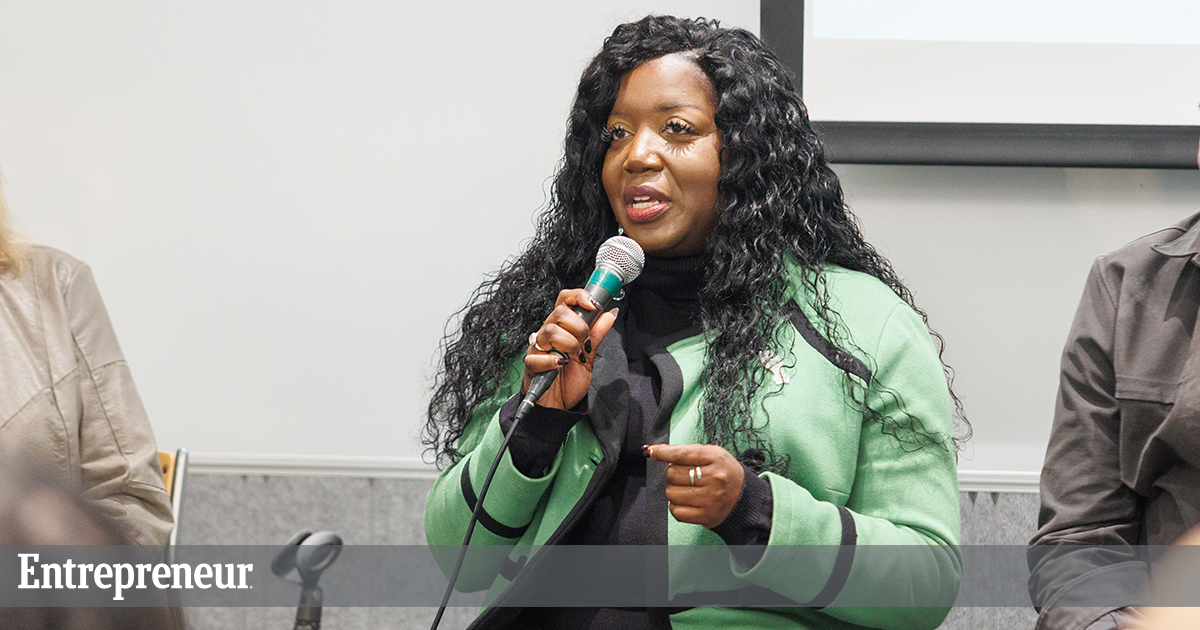Joining Boards Early in Your Career Can Change Your Trajectory for the Better — Here’s How to Harness Their Power

As your career grows, your network, ideally, should grow alongside it. A professional network ultimately expands your opportunities, helps you achieve your goals and introduces you to people across industries and experiences. Board positions are a crucial element of any professional network.
I sat on my first board as a preteen when I served as a member of one of the first youth credit unions in my hometown of Springfield, Massachusetts. It was a Black-owned venture that was owned and managed by young people; it showed me the power of people coming together to pursue a goal and share ideas.
Editor’s note: This article first appeared in Entrepreneur magazine.
Flash forward to now, and, among my other board positions, I currently sit on the National Women’s Business Council, a nonpartisan federal advisory committee serving as an independent source of advice and policy recommendations to the United States President, Congress and the Administrator of the U.S. Small Business Administration. From this position, I can influence the government on issues of importance to women business owners and entrepreneurs.
As I’ve built out a decades-long career as an entrepreneur and thought leader, I’ve seen the power board positions can have on one’s professional life and influence, especially when you’re starting out. More than just a résumé booster, these opportunities can pivot your career in new directions. They can grow your confidence and skills. And, if you’re an entrepreneur, they can attract funding and advisors for your own ventures.
Conversely, companies with more diverse boards tend to outperform their less diverse counterparts. A recent McKinsey Insights report about corporate diversity shows that companies with diverse boards of directors, across genders and ethnicities, financially surpass less diverse companies. I see those results in my day job as the executive director of the Frank & Eileen™ Center for Women’s Entrepreneurial Leadership at Babson College. It’s as imperative as ever for boards to seek out new individuals for these positions.
Board positions can include advisory boards for nonprofits and community organizations, boards of directors or trustees for startups and other organizations, as well as government and commission boards. Even if your stint is short or doesn’t feel fruitful in the moment, there are benefits to reap from the experiences. When looking for positions, keep these factors in mind.
Think Outside Your Personal Box
From commercial businesses to higher education institutes to community organizations, there are dozens of board opportunities to explore. Some boards I sit on now are ones I would have never considered early in my career. Those experiences have only expanded my skill sets and networking opportunities. Don’t let your current role or interests dictate your board position search.
When searching for board positions, pay more attention to the job description than the industry. You can adapt your skills across fields; it’s more important to ensure you get what you want out of the position.
“More than just a résumé booster, these opportunities can pivot your career in new directions. They can grow your confidence and skills. And, if you’re an entrepreneur, they can attract funding and advisors for your own ventures.” Dr. Shakenna Williams, Executive Director of the Frank & Eileen™ Center for Women’s Entrepreneurial Leadership at Babson College
Look at company websites and traditional job boards such as LinkedIn to find what’s out there and how the organization describes the position. Also, see how different organizations define board members vs. directors vs. committee members to determine the level of commitment. From that research, you can see how your viewpoint and skill set could provide value to an organization.
Build on Opportunities
The most coveted board positions are paid, but they aren’t usually available at square one. Starting small doesn’t mean you will always be small, though. As you sit on boards, you learn how they function — as well as how you function within them. Each board position is an opportunity to upskill and prepare yourself for the next one.
Your first board position should give you perspective into five key areas:
- How these opportunities can fit into your schedule
- What effort you can feasibly extend
- What training you need (this includes board-specific training)
- What areas of expertise you feel comfortable guiding people in
- How a board position can shape your short- and long-term goals
With that knowledge, you can sketch out the positions you want. It’s a great exercise in professional self-discovery, as well as advocacy for yourself, your skills and your influence. The sooner you start, the sooner you can find the optimal board opportunity.
Consider Everyone Your Network
Don’t wait for people to come to you. Your community is a great place to seek out opportunities, especially for young leaders and entrepreneurs. Let it be known that you are looking for new opportunities with everyone in your professional network, and even personal, if you feel comfortable. That includes community organizers and leaders, mentors and former managers, coworkers, people you meet at conferences and clients. Keep in touch with people and inquire about organizations and companies they are a part of.
It’s important to confidently convey how you can leverage your background and skill set when seeking board opportunities. Make sure you know how to sell yourself to these people. Keep your professional branding and social media up-to-date, concise and consistent across platforms.
Also look for positions that let you provide mentorship. Although you may not feel prepared to be a mentor early in your career, one day you will probably want to tap into that role. An advantageous board position will provide both clarity and insights about your professional life and potential ways to give back to your community and networks.
It’s never too early to start building out a portfolio and seeing what board opportunities are available to you. Ideally, your next board position brings you something new, whether it’s a funding opportunity or business partner, an untapped skill or a sense of accomplishment and community.
Dr. Shakenna Williams ’94 is executive director of the Frank & Eileen™ Center for Women’s Entrepreneurial Leadership at Babson College, where she founded the Black Women’s Entrepreneurial Leadership Program and oversees the WIN Global Lab Accelerator Program and Diana International Research Institute.



